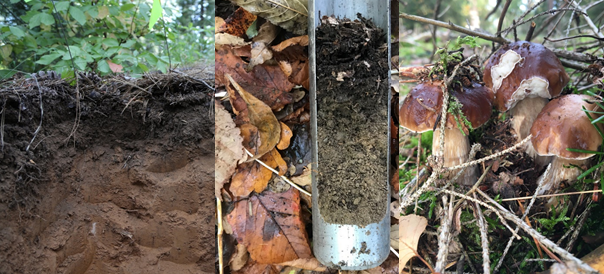Vortragsreihe Ökologie und Umweltforschung SS 2022
Prof. Dr. Johanna Pausch
Agroecology, BayCEER, UBT (Homepage)
Donnerstag, 05.05.2022 12:15-13:45, H8/GEO
Tenure track evaluation: Mycorrhizal Fungi and Soil Carbon Storage
The world's soils are the largest terrestrial reservoir of organic carbon (C). Feedbacks between soil organic C and atmospheric CO2 will determine the future trajectory of climate change. However, predictions are largely uncertain because we still lack fundamental knowledge of the complex interplay between plants and microorganisms and its influence on C turnover. Most terrestrial plants live in symbiosis with mycorrhizal fungi. Previous work suggests that on a global scale soil C stocks are linked to the distribution of arbuscular mycorrhizal (AM) or ectomycorrhizal (ECM) plants. To date, it is not clear whether there is a causal relationship between mycorrhizal type and soil C storage. Answering this key question requires novel concepts that consider the mechanistic link between short-term C fluxes from plants to mycorrhizal fungi and C storage as an emerging ecosystem property. In my presentation, I will give an overview of ongoing and future research on the dynamics of C input by mycorrhizal fungi to soil, their effects on C turnover and their implications for C storage in ecosystems dominated by AM or ECM trees.

Weitere Informationen:
Das BayCEER-Kolloquium dient als interdisziplinäre Plattform für Studierende, Wissenschaftler*innen und Interessierte: während der Vorlesungszeit geben Gäste und Mitglieder des BayCEER Einblicke in ihre Forschung, die im Hörsaal und in lockerer Atmosphäre beim Postkolloquiums diskutiert werden.
- Programm Kolloquium WS2025/26 (PDF)
- Kolloquiums-Newsletter für Interessierte
- Hinweise für Vortragende
- Hinweise für Einladende (PDF)
- Terminplanung kommende Semester und Vortragsarchiv

